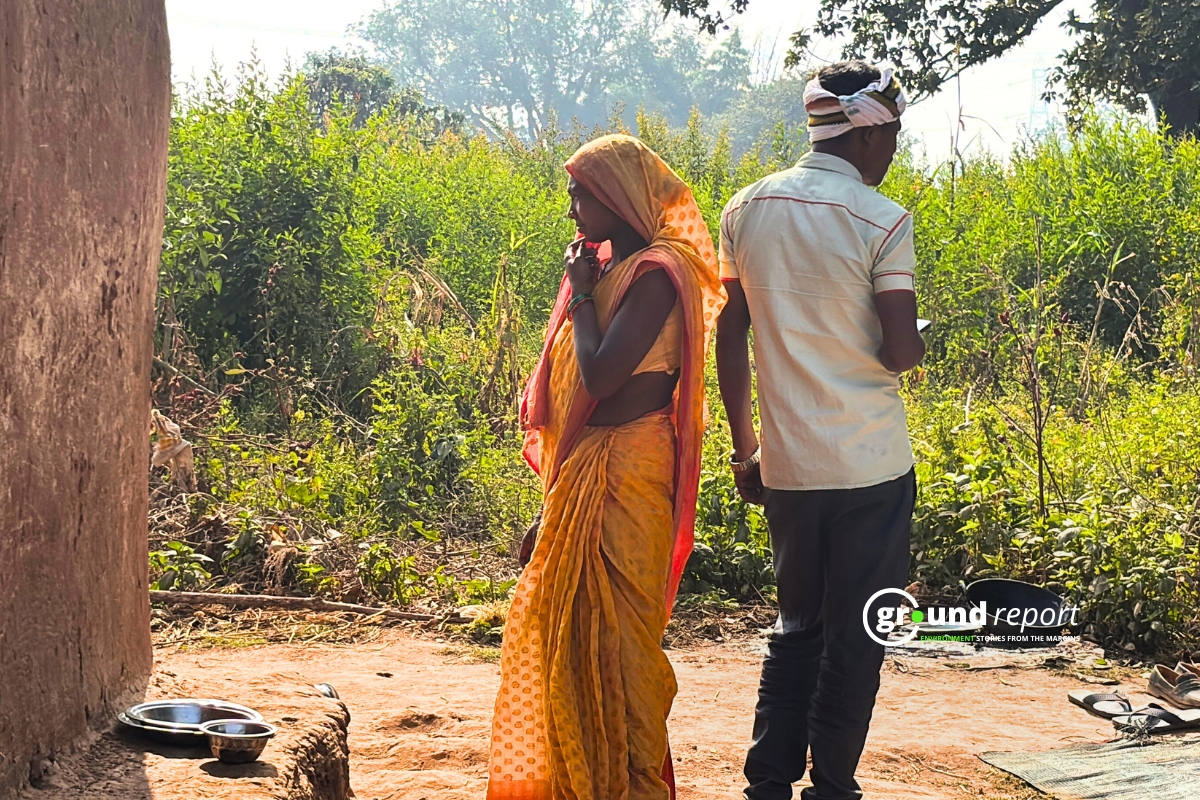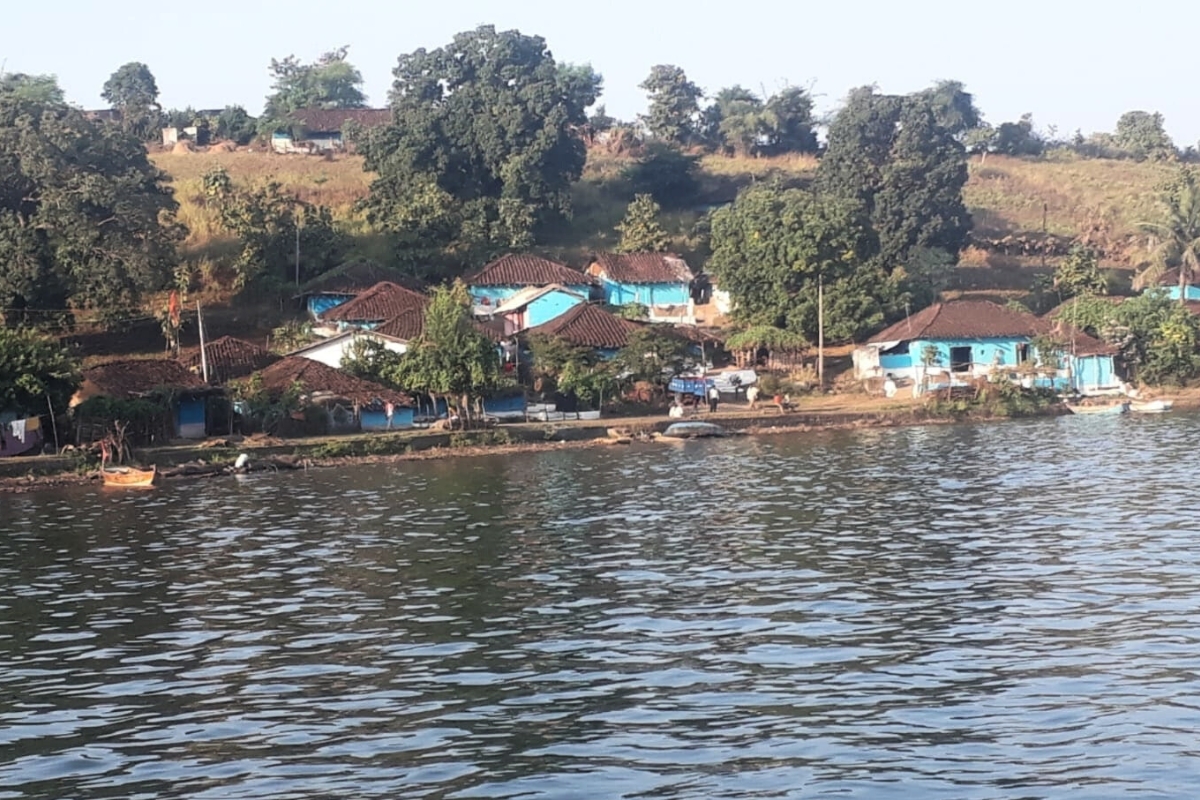हिंदी में पढ़ें । On a quiet evening in Parasia, a small town in Madhya Pradesh’s Chhindwara district, two-half year-old Yojita Thackeray cried for water as her parents watched helplessly. Her body was swollen, her breathing weak. Days earlier, she had been given a cough syrup prescribed for a mild fever. Within weeks, she was dead.
Yojita’s death is one of at least 22 confirmed cases linked to a toxic cough Coldrif syrup found to contain dangerous levels of diethylene glycol, a chemical commonly used in antifreeze. The incident has left families across Chhindwara grieving and has exposed serious lapses in India’s drug monitoring system.
The first cases of kidney failure among children in Chhindwara appeared in late August 2025. Parents brought their children to local hospitals after symptoms such as vomiting, diarrhea, and swelling appeared soon after taking cough syrup sold under the brand name Coldrif.
Laboratory tests confirmed that the syrup contained between 46.28% and 48.6% diethylene glycol, a level far above the safe limit of 0.1%. The chemical is toxic to the kidneys and can lead to multiple organ failure.

Dr. Praveen Soni, who prescribed the syrup to several children, was arrested after test results confirmed the presence of the poison. The state government banned the product immediately, recalled all remaining bottles, and suspended several drug officials.
Authorities also formed a Special Investigation Team (SIT) to probe the case and announced compensation for affected families.
Pain United Families Across Chhindwara
For Shivani and Sushant Thackeray, the events began on September 8. Their daughter, Yojita, developed a mild fever. Dr. Soni examined her, performed a urine test, and prescribed the syrup. Following his advice, they gave her a dose every six hours.
By the next day, the fever worsened. Yojita began vomiting and passing loose stools. Shivani recalls that the doctor ordered more tests. “When the reports came at around 8:30 in the evening, Dr. Soni said her condition was critical,” she said.
Dr. Soni accompanied the family to Nagpur, about 148 kilometers away. Aastha Medical Hospital refused to admit the child, so they went to Nelson Hospital, where she was admitted at 1:30 a.m. on September 10. She began dialysis that same day.
“The dialysis continued for four or five days,” Shivani said. “She would cry, ‘I want Mom and Dad, I want water,’ but we were not allowed inside. We felt helpless.”
Over the next three weeks, her condition worsened. Her body swelled, her oxygen levels dropped, and she was placed on a ventilator.

“The last thing she said was, ‘Papa, take me home,’” Sushant said quietly.
On October 1, she was moved to Lata Mangeshkar Hospital. Three days later, she died. She was two years and two months old.
Her family buried her the next morning. But a day later, local officials asked them to exhume the body for a post-mortem. Parasia Sub-Divisional officer police (SDOP) Jitendra Jat told the family the examination could “help identify the real cause and prevent more deaths.”

Yojita was the couple’s only child. Her parents continue to cooperate with the administration in the ongoing investigation.
Parents fight for justice after loss
It all started when a child named Shivam Rathore developed symptoms of acute kidney failure. Doctors diagnosed acute tubular injury. His biopsy confirmed kidney damage consistent with poisoning by diethylene glycol.
Despite this, action was delayed for over a month. The formal police complaint was lodged on October 5, nearly ten weeks after the first case. The Parasia Block Medical Officer filed the FIR under sections 105 and 276 of the Bharatiya Nyaya Sanhita (BNS), covering negligence and poisoning, and under Section 27A of the Drugs and Cosmetics Act, which deals with manufacturing adulterated drugs.
The complaint held both the manufacturer and distributors responsible for the deaths.
The syrup was made by Sreesan Pharmaceuticals, a company based in Kanchipuram district, Tamil Nadu. The syrup batch in question, SR-13, was produced in May 2025 and had an expiry date of April 2027.
Police arrested Dr. Soni first, followed by G. Ranganathan, the owner of Sreesan Pharmaceuticals. The SIT brought Ranganathan from Chennai to Parasia under tight security.
The process of tightening drug regulations has begun at both the state and central levels. Following this tragedy, the World Health Organization (WHO) has expressed concern about drug safety deficiencies in India, bringing the issue into the international spotlight and prompting calls for immediate reform of drug regulations.

A large crowd of parents gathered outside the police station and the Parasia Sessions Court as Ranganathan was presented. Many carried photos of their children. The court remanded him to ten days of police custody.
Among the crowd was Yasin Khan, a resident of Chhindwara whose five-year-old son, Usaid Khan, also died after taking the syrup. Yasin had mortgaged his auto to pay for his son’s treatment.
“The properties of those who have killed our children must be bulldozed. Only then will we know justice has been served,” Yasin said.
Police and local officials have since begun collecting remaining bottles of the syrup from pharmacies and homes. Announcements are being made through public vehicles urging residents to surrender suspicious medicines.
Despite these steps, many parents say the administration acted too late. The first death occurred in August, but the recall began only in October.
In Chhindwara town, Salman Khan lost his seven-year-old daughter, Atiya, on September 3. She fell sick on August 20 and was treated at the Chhindwara District Hospital. Her condition worsened, and she was admitted to the ICU on August 31.
Doctors tried to save her, but she died three days later.
Salman did not know the cause until weeks later. “Anganwadi workers came to collect samples of the medicine we gave her,” he said. “Only then did we learn that she had died because of that syrup.”
Athiya’s uncle, Aamir Khan, said she dreamed of becoming a police officer. “She used to say, ‘Babba, I’m here,’ whenever I came home,” he said. “Now the house is silent.”
Doctors Under Scrutiny
The deaths have deeply shaken Chhindwara’s medical community.
Dr. Alpana Shukla, a pediatrician in Chhindwara and member of the Indian Medical Association, said diethylene glycol is sometimes used as a solvent in syrups but must remain below 0.1%. “The investigation showed levels were high,” she said. “This chemical severely damages the kidneys. The original formula was not the problem; it was adulteration that made it lethal.”

Dr. Shukla said doctors prescribe only licensed medicines and are not responsible for testing their chemical composition. “We consider licensed medicines safe. If they are adulterated, the responsibility lies with the production and monitoring system,” she said.
She added that fear has spread among doctors. “Now we worry that if a drug turns out to be adulterated, we might be arrested. Patients keep asking, ‘Madam, is this medicine safe?’ This fear affects both society and the medical system.”
Dr. Shukla now wears a black ribbon while treating patients as a form of silent protest. “The most crucial part of any medicine is its manufacturing,” she said. “If a mistake happens, there are supposed to be multiple checks, drug controllers, inspectors, and quality tests. When those fail, tragedies like this occur.”
She said that when contamination is detected in a drug batch, a medical advisory is supposed to be issued immediately. “If that information had reached hospitals in time, these deaths could have been prevented,” she said.
Dr. Shukla and other doctors held a candlelight march on October 11 to mourn the children and demand Dr. Soni’s release, arguing he was not responsible for the adulteration.
Systemic Failures
The investigation revealed serious weaknesses in Madhya Pradesh’s drug testing system. Only one state laboratory, in Bhopal, was fully operational. New labs in Indore and Jabalpur had not been commissioned because of missing approvals and a shortage of equipment and staff.
Reports by India Today and NDTV India, revealed that samples of the syrup were sent by speed post, which caused delays of up to three days before testing even began.
Mobile testing vans purchased for emergency use were found unused and idle. These failures allowed the adulterated syrup to remain in circulation for weeks.
Chief Minister Dr. Mohan Yadav acknowledged the lapses. He said the government would modernize drug labs, hire more staff, and strengthen quality checks. Several officials were suspended following internal inquiries.

For many families, the tragedy has left lasting scars. Sushant Thackeray said his trust in doctors and medicine is gone. “If we had treated Yojita at home with home remedies, this might not have happened,” he said.
Doctors also face public anger. “Patients are now afraid of every medicine,” Dr. Shukla said. “They ask again and again if what we are prescribing is safe. This situation makes our work very difficult.”
The deaths have not only exposed a failure of quality control but have also shaken public faith in healthcare itself.
Hospitals and pharmacies, once seen as safe places, are now viewed with suspicion in many parts of Chhindwara. For parents like Yasin, Aamir, Sushant, and Salman, the pain is permanent.
Their children went to doctors with simple fevers. They never came home.
Support us to keep independent environmental journalism alive in India.
Keep Reading
Highway Halt Puts Kashmir’s Fruit Economy at Risk
MP brings back Bhavantar as farmers lose soybean harvests
Stay connected with Ground Report for underreported environmental stories.
Follow us onX, Instagram, and Facebook; share your thoughts at greport2018@gmail.com; subscribe to our weekly newsletter for deep dives from the margins; join our WhatsApp community for real-time updates; and catch our video reports on YouTube.
Your support amplifies voices too often overlooked, thank you for being part of the movement.








